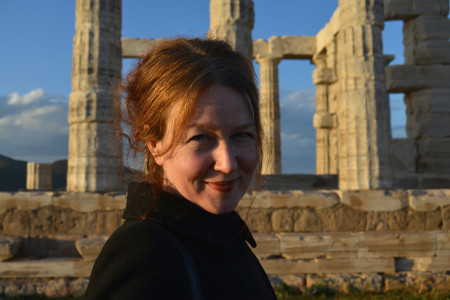
Prof Ursula Rothe
Professor Of Roman Archaeology And History
Biography
Professional biography
Although originally from Australia, I studied for my undergraduate degree in Germany, after which I did my doctorate at the University of Manchester. From 2007-2011 I was at the University of Edinburgh, first as temporary lecturer, then as Leverhulme Early Career Research Fellow. In 2012 I was project manager of the final phase of the EU project DressID: Clothing and Identities in the Roman Empire based at the Reiss-Engelhorn Museums in Mannheim, Germany. I joined Classical Studies at the Open University in October 2012.
Research interests
My research looks mainly at dress in the Roman Empire - both Rome and the provinces - and the way that clothing and appearance was used to assert and negotiate cultural identities. I also have an interest in funerary art and epigraphy in general, as well as cultural theory and the way we interpret cultural interaction in the Roman provinces. A have written two monographs, one on dress in northern Gaul and the German provinces (2009), and one on the role of the toga in Roman culture (2019).
I am also interested in the Roman Near East: I ran an excavation project investigating the remains of a late Roman monastery on Tall Zira’a in north-western Jordan from 2010-2014, and am currently, with Prof. Jen Baird at Birkbeck, working on dress iconography and finds from Dura Europos in Syria. I have also been involved in archaeological fieldwork in Italy, the Netherlands and Portugal.
I welcome enquiries from prospective PhD students who would like to work in any of the above areas.
Teaching interests
My teaching experience is mainly in Roman history and archaeology, but have also taught Greek history and Classical art. At the Open University I have helped to write the Roman Empire course (A340) and the new MA in Classical Studies, and I co-chair A863/A864 (the MA in Classical Studies). As Deputy Director of Research Degrees in the faculty, I help look after the faculty's PhD students.
I am a Senior Fellow of the Higher Education Academy (HEA).
Impact and engagement
I am a regular blogger and contributor to public fora, such as:
“Prince Philip may well be Caligula’s horse”: blog post, Rogueclassicism
“Exploring Roman dress”: video interview on Classics Confidential
I am also a regular advisor to programmes broadcast on the BBC and the German channels ARD and ZDF.
You can listen to a Radio 1 interview with me on the toga here (minutes 7.27-14.23).
I also run a Roman fashion show for schools - please contact me directly if you are interested in this for your school.
Visit my clinic website Doctor Toga for information and advice on Roman dress!
External collaborations
I am a Fellow of the Society of Antiquaries (Scotland) and a trustee of the Clayton Trust.
International links
I have served as co-editor of the peer-reviewed journal Archaeological Textiles Review based at the University of Copenhagen.
I am involved in peer-reviewing project proposals for the European Commission and the Deutsche Forschungsgemeinschaft as well as a range of international journals and publishers.
Publications
Book
The Toga and Roman Identity (2019)
Dress and Cultural Identity in the Rhine-Moselle Region of the Roman Empire (2009)
Book Chapter
Dress in Rome’s northern provinces (2025)
Polychromie auf Porträtgrabsteinen: clavi auf gallischer Kleidung? (2024)
The Roman Villa: Definitions And Variations (2018)
Ethnicity in the Roman north-west (2014)
Das norische Frauengewand (2013)
Die norisch-pannonische Tracht: gab es sie wirklich? (2013)
Rome, resistance to (cultural) (2012)
Roman Empire, regional cultures (2012)
Dress and cultural identity in the Roman Empire (2012)
The comparative and interdisciplinary approach and Romanisation studies (2007)
Journal Article
Roman Clavus Decoration on Gallic Dress: A Reevaluation Based on New Discoveries (2023)
Roman clavus decoration on Gallic dress: a re-evaluation based on new discoveries (2023)
Excavations in Area III on Tall Zar‘ā (2018)
Dress in the middle Danube provinces: the garments, their origins and their distribution (2012)
The “Third Way”: Treveran women’s dress and the “Gallic Ensemble” (2012)
Der Grabstein der Severina Nutrix aus Köln: eine neue Deutung (2011)